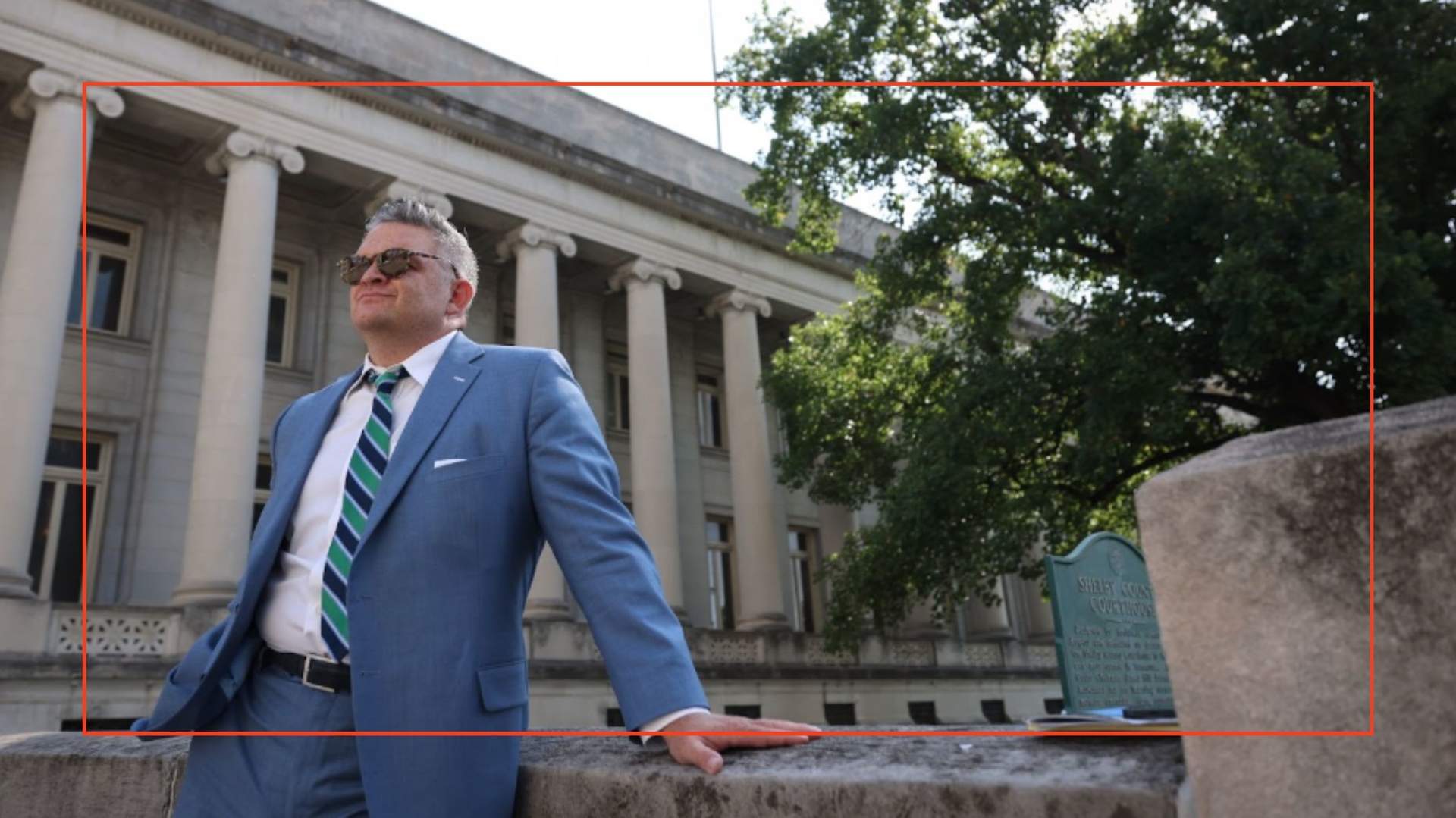
Guilford gave him a chance when no one else would. These days, criminal defense lawyer Michael Working ’98 is just paying it forward.
“Quakers have a long history of standing up for what they think is right even if it's unpopular, and even if they're in the minority. I’ve never forgotten what the College did for me. I try to do that for others.”
Caption: “Guilford believed in me,” says Memphis attorney Michael Working '98. "They saw who I was as a person. That’s always meant a lot to me.”
Sometimes simple questions bring the most complicated answers.For example, snag Memphis lawyer Michael Working on one of those rare workdays when he has a few minutes to come up for air, and ask him why.
As in, why does one of Memphis’ better-known criminal defense lawyers invest so many hours — sometimes 70 a week — helping clients with a criminal case they have a paper-thin chance at winning? Why does he assist so many people already in prison appeal their convictions with even less of a chance at reversing those convictions?
See how Michael smiles through a side-eyed glance. His answer comes from a line composed by blues singer John Lee Hooker in his seminal “Boogie Chillun,” a favorite Michael used to play back when he spun records at WQFS, Guilford’s radio station.
As Michael tells the story there’s a line in the song when the blues singer’s father tells his wife their son was born to sing and dance: “The boy’s got the boogie-woogie in him and it gots to come out!”
“That’s me,” says Michael. “I was born to be a lawyer. It gots to come out.”
That’s the answer Michael offers up at dinner and cocktail parties. But for more context, pry a little deeper and go back to when he was a senior at his Baltimore prep school fielding offers to play football in college. That’s when he broke up a hazing incident a few months before graduation.
“I just pushed some bigger kids off a freshman they were beating up,” he recalls. As Michael tells the story, he never threw a punch. Nevertheless, he was charged with assault. The charges were later dropped but the damage was done.
Most colleges showed little interest in Michael after the incident except one. “Guilford believed in me,” says Michael. "They saw who I was as a person. That’s always meant a lot to me.”
Even now, all these years later, a small Quaker college in the South supporting a Jewish teenager from Baltimore had a profound impact on Michael.
“Quakers have a long history of standing up for what they think is right even if it's unpopular, and even if they're in the minority,” he says. “I’ve never forgotten what the College did for me. I try to do that for others.”
And so every morning Michael shows up to work — at an old Quaker Meeting House in Memphis that he converted into a law office— to help others who he believes have been wronged by a justice system that frequently treats the disenfranchised and moneyed differently.More often than not, his cases fly under the radar though sometimes they make national headlines. Like the time he helped exonerate Noura Jackson, who spent nine years in prison for being wrongly convicted by overzealous prosecutors who later were shown to have withheld evidence.
It’s a stressful job. “Think about it this way,” says Michael. “Best-case scenario is you’re dealing with a guilty sociopath. You go through all the steps of trial. And this guy gets a fair trial and gets sent away. You couldn't get him a more perfect trial. Those are actually the cases that are easy to sleep on afterwards. The really hard ones are when you have a client who's innocent and the system won't stop and it won't listen, and it won't help. Their whole life is riding on you. That's terrifying. And it happens all the time here. That's when I can’t sleep.”
The Noura Jacksons of the world keep him going. So every morning Michael gets up and goes to work again, hoping to rescue one of those lives.
Michael wasn’t a standout football player at Guilford, though he did rush for 101 yards and a touchdown in the1997 Soup Bowl against Greensboro College. Tina Beahan ‘97 remembers her classmate as the guy who always thought popularity was overrated. She remembers Michael as the football player who preferred a solitary game of chess in a corner of Founders Hall with a cafeteria worker over hanging out with other student athletes on a Friday night.
“He has never been interested in popularity or following the crowd,” says Tina. “He saw and acknowledged that everyone has value. That's why he fights for those who have been marginalized by our society. For him, it's about treating people with the dignity they deserve and doing what is right.”
Michael and his wife Carole moved to Memphis shortly after she graduated from UNCG. The reason was easy: The cost of living was a little less and the Memphis music scene is legendary.
Michael, a huge blues fan, went to law school at the University of Memphis and has been helping those around him ever since. It’s not just the wrongfully convicted he helps.
Brandon Rothfuss ’15 connected with Michael shortly after landing a sales job last year with the Memphis Grizzlies NBA team. But first he needed a place to stay. An acquaintance at Guilford told him to give Michael a call.
Michael met Brandon for dinner that night. That one month stay in Michael’s spare bedroom turned into six months while Brandon learned his way around the city. “That’s just Michael being Michael,” says Brandon. “He cares about everyone and it shows in whatever he does.”

